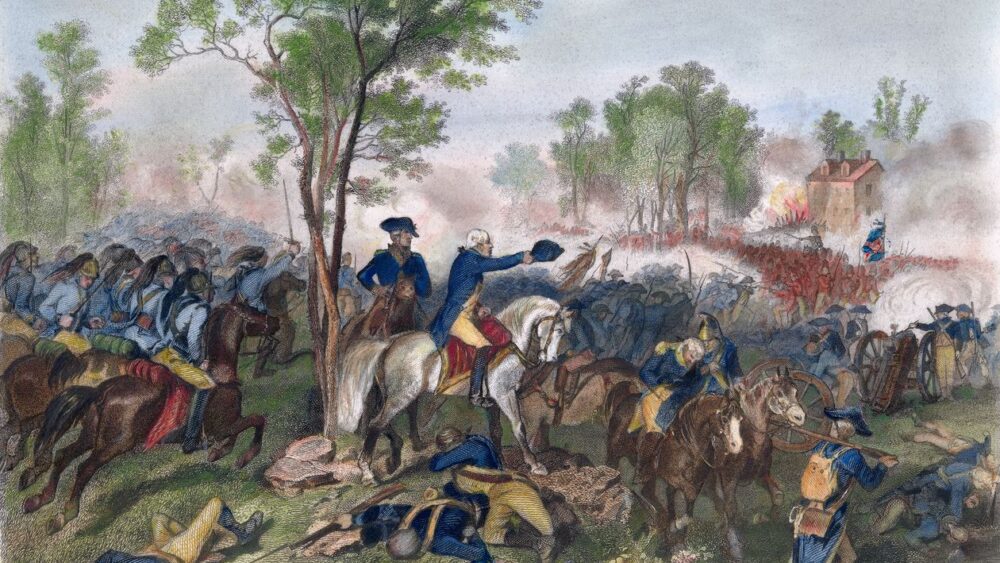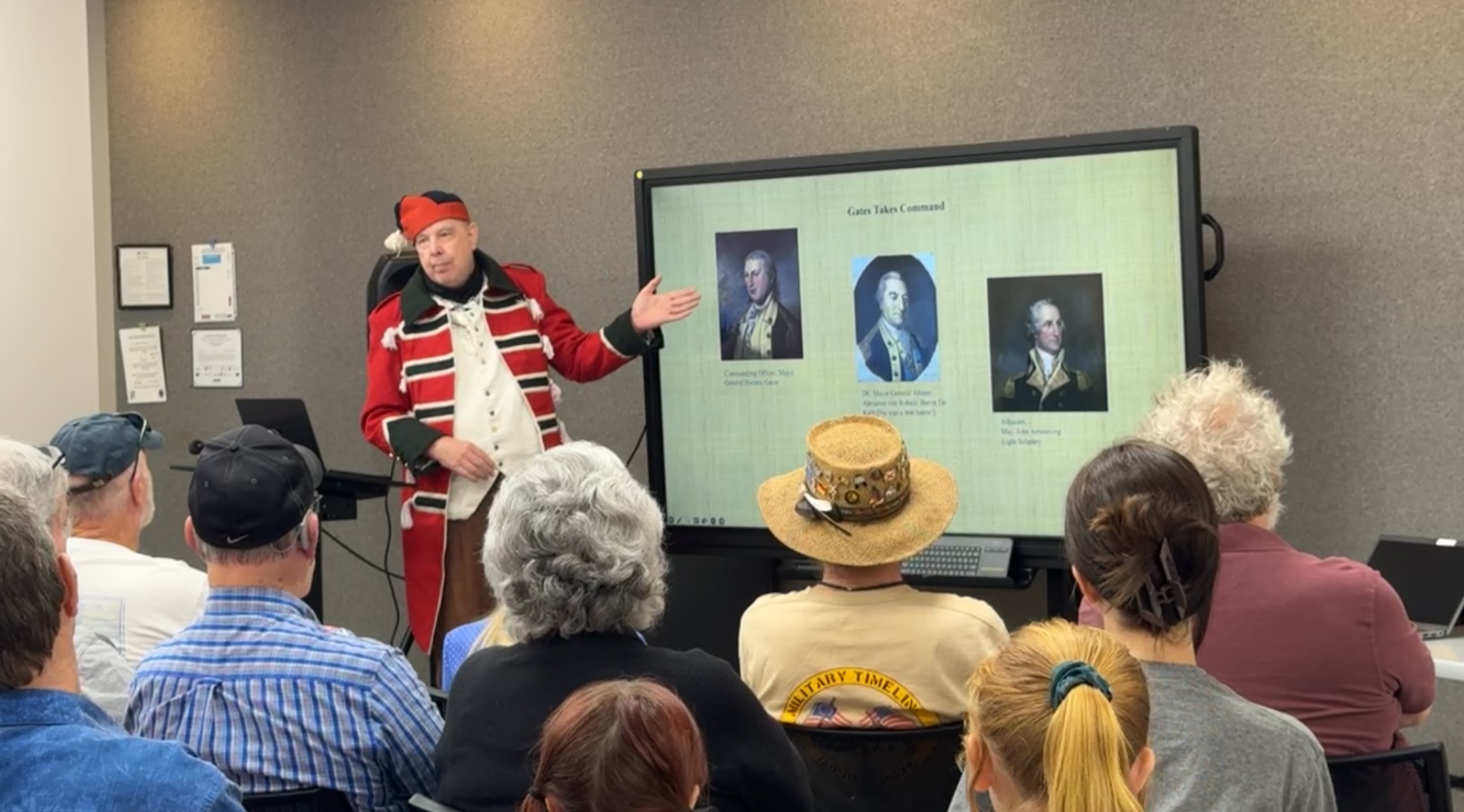The Battle of Eutaw Springs was the last major battle of the Revolutionary War to be fought in South Carolina. Who won? It depends on whom you ask.
The battle took place on Sept. 8, 1781, about two miles east of present-day Eutawville, in Orangeburg County.
Kim Stacy, a veteran himself and passionate student of the Revolution, will talk about the battle in a free lecture at noon on Friday, Oct. 10, in the Theater of the Richland Library main location on Assembly Street in Columbia. “The Battle of Eutaw Springs” is part of the South Carolina Confederate Relic Room and Military Museum’s regular Noon Debrief program, and the public is invited.
Stacy spoke at another Noon Debrief on May 30 about another famous engagement of that war, the Battle of Camden. Don’t be surprised if he shows up, as he did on that occasion, wearing a British redcoat uniform. He is very dedicated to telling that side of the war, as well as the one most Americans are used to hearing.
This was not a particularly glorious moment in the story of Patriot forces. For that matter, the Brits, despite representing the world’s greatest superpower, had seen better days as well. The fight started at a time when British Col. Alexander Stewart, seeking to make up for a shortage of bread in his supplies, was sending foraging parties out to dig up yams each morning, unarmed except for a small guard detail.
One day, the Patriot force under Major General Nathanael Greene came across Stewart’s foragers and captured about 400 of them. Greene’s force then attacked the British main camp.
But the American force, notes Stacy, started looting the British camp once they got into it. It seems they were very thirsty. They got into the rum, and Stacy maintains that as a result, “They lost it because they were drunk.”
But in a strategic sense the British didn’t do well from this fight, reports Wikipedia:
Despite winning a tactical victory, the British lost strategically. Their inability to stop Greene’s continuing operations forced them to abandon most of their conquests in the South, leaving them in control of a small number of isolated enclaves at Wilmington, Charleston, and Savannah. The British attempt to pacify the South with Loyalist support had failed even before Cornwallis surrendered at Yorktown.
Come hear Stacy’s more detailed and nuanced account, mined from such original sources as soldiers’ personal letters and memoirs.




Comments are closed.